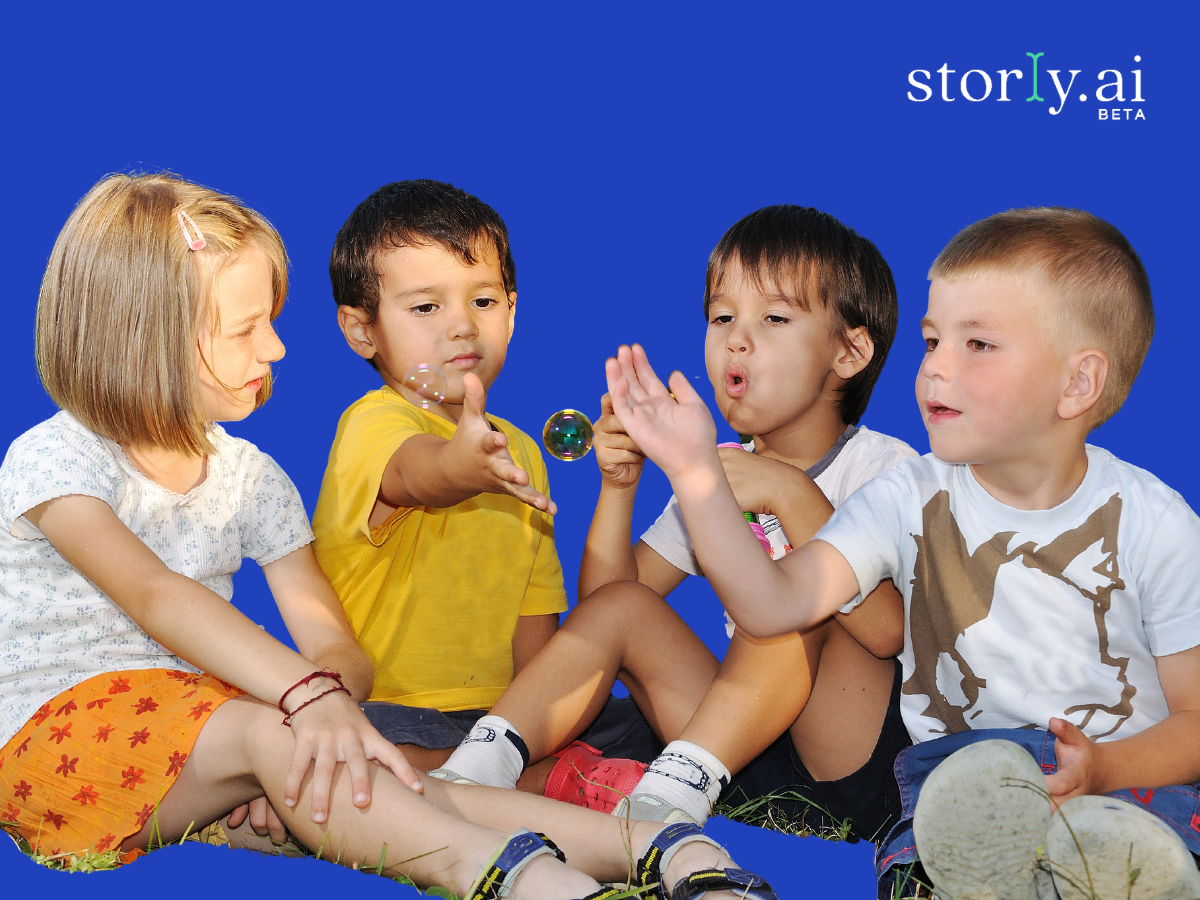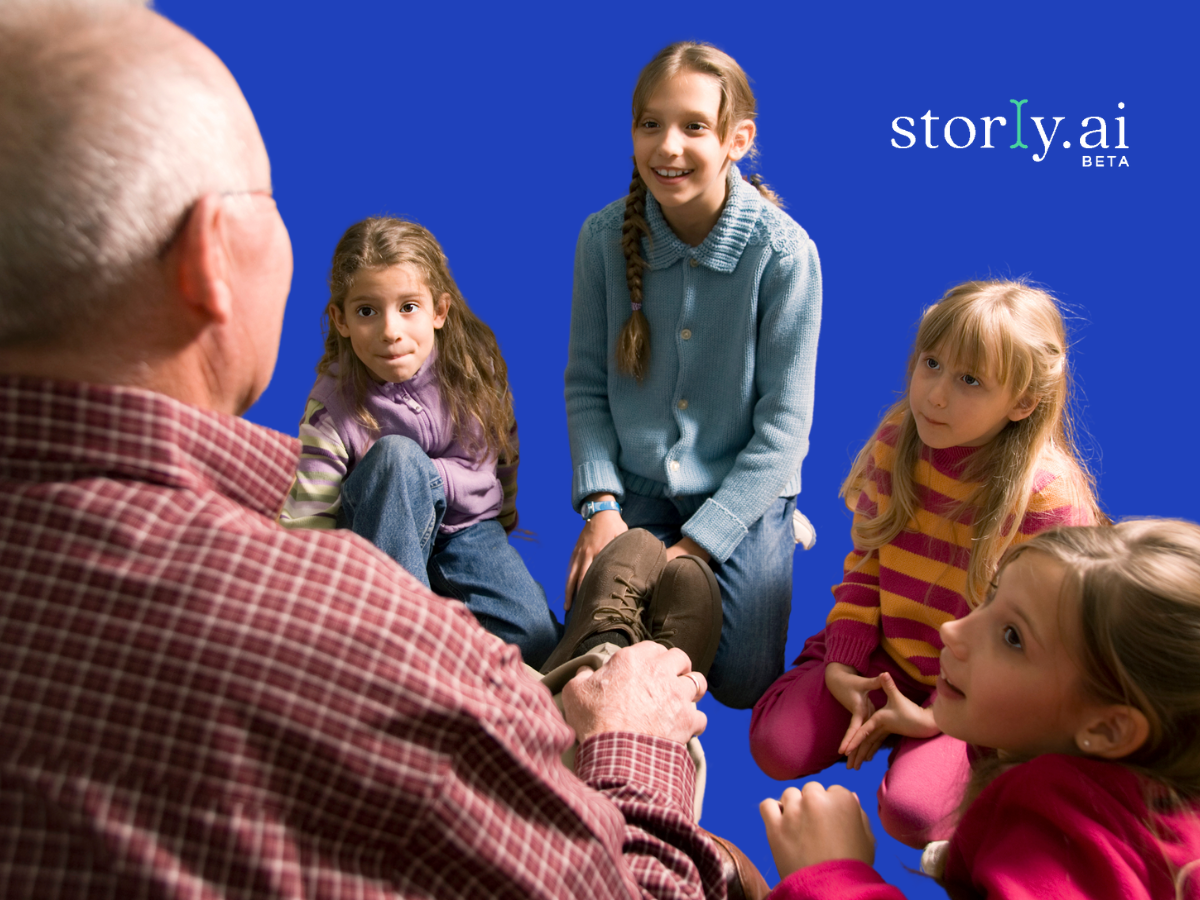Childhood questions to ask can be a powerful tool for nonprofits aiming to connect deeply with their audience. By invoking nostalgic memories, organizations can foster a sense of shared history and values that resonates with supporters. This approach not only humanizes the cause but also strengthens the emotional bond between the nonprofit and its community, making it a potent strategy for engagement and storytelling.

The Importance of Childhood Questions for Nonprofits
Storytelling is at the heart of effective communication for nonprofits. It’s a way to convey the impact of their work, drawing in potential donors through compelling narratives. Utilizing childhood questions as a narrative device allows for the creation of relatable and emotionally charged stories that can amplify a nonprofit’s message and drive action.
Why Childhood Questions Matter
Asking about childhood experiences is more than just a trip down memory lane; it’s a technique that can uncover genuine, heartfelt stories that underscore the human element of a cause. These questions encourage storytellers to share personal anecdotes that highlight the universal aspects of growing up, fostering empathy and understanding that are essential for any nonprofit looking to make a lasting impression on its audience.
How to Ask the Right Childhood Questions
Crafting the right childhood questions to ask is crucial for eliciting authentic and meaningful responses. Open-ended questions, those that cannot be answered with a simple ‘yes’ or ‘no,’ encourage deeper reflection and storytelling. These types of inquiries invite individuals to share detailed memories and experiences, providing nonprofits with rich narratives to connect with their audiences.
The Art of Open-Ended Questions
The art of asking open-ended questions lies in their ability to prompt a detailed response. For nonprofits, these questions can reveal the motivations, values, and passions that drive supporters. Phrases like “Tell me about a time when…” or “What was it like growing up…” can unlock a wealth of stories, each with the potential to resonate with others and further the nonprofit’s mission.
Creating a Comfortable Environment for Sharing
A comfortable and trusting environment is essential for individuals to open up about their childhood. Nonprofits can foster such an atmosphere by ensuring privacy, showing genuine interest, and expressing empathy. When people feel safe and valued, they are more likely to share personal anecdotes that can be transformed into powerful narratives for the organization’s cause.
List of 7 Powerful Childhood Questions to Ask
Unearthing precious memories can give nonprofits a unique insight into the lives and experiences of their supporters. Here’s a list of seven powerful childhood questions to ask that can help unlock those treasured recollections and build a narrative that resonates.
Question 1: Can You Recall Your Earliest Memory?
This question often leads to vivid stories filled with emotion and detail, providing a glimpse into the formative years of an individual’s life. It’s a great starting point for any conversation aimed at piecing together the mosaic of someone’s past experiences.
Question 2: Who Was Your Best Friend in Childhood and Why?
Friendships shape our childhoods and the stories about them can illuminate the values and social dynamics that were important to us. This question can reveal deep connections and pivotal moments that have helped define a person’s character and life choices.

Question 3: What Childhood Games or Activities Brought You the Most Joy?
Revisiting the games and activities that brought joy in childhood can be a delightful walk down memory lane. It can also show the roots of passions and interests that have blossomed into adulthood, providing a nonprofit with heartfelt stories to share.
Question 4: Can You Share a Memorable Family Tradition from Your Childhood?
Family traditions are often rich with cultural significance and emotional weight. This question can unlock stories that demonstrate the importance of community and belonging, which are central themes for many nonprofit organizations.
Question 5: What Was Your Favorite Childhood Book or Story and Why?
Literature and stories from childhood often hold special meaning and can reflect the dreams and aspirations of a person. This question can lead to narratives that underscore the transformative power of reading and education, aligning well with nonprofits focused on these areas.
Question 6: Is There a Childhood Teacher or Mentor Who Made a Significant Impact on Your Life?
Mentors and teachers can leave a lasting impression, and their influence is a testament to the power of guidance and support. This question can help nonprofits find stories that highlight the impact of strong role models and supportive networks.
Question 7: What Childhood Dream or Aspiration Has Stayed with You into Adulthood?
Dreams and aspirations drive us forward, and understanding those that persist can reveal a person’s deepest motivations. Nonprofits can use this question to draw connections between an individual’s past and present, illustrating the continuity of purpose and vision.
Leveraging Childhood Memories for Nonprofit Growth
Childhood questions to ask are not just about reminiscing; they are strategic tools that nonprofits can use to deepen connections and drive growth. By turning these memories into compelling stories, organizations can tap into the power of nostalgia and shared experiences to create a sense of community and purpose that resonates with potential donors and supporters.
Turning Memories into Stories
The transition from memory to the story is where the magic happens for nonprofits. It involves shaping those childhood recollections into narratives that align with the organization’s mission and values. These stories can serve as testimonials to the impact of the nonprofit’s work, making them an invaluable asset for communication and fundraising efforts.
Sharing Stories to Boost Donor Support
When shared effectively, these childhood-inspired stories can significantly boost donor support. They humanize the cause, making it relatable and compelling. By showcasing real-life examples of change and development, nonprofits can inspire action and foster a strong community of engaged supporters who are invested in the continuation and success of their initiatives.
Conclusion: The Power of Childhood Questions in Unlocking Precious Memories
In conclusion, the strategic use of childhood questions to ask can be a transformative approach for nonprofits. These inquiries serve as keys that unlock the treasure trove of precious memories, each with the potential to strengthen connections and inspire action. By harnessing the power of these stories, nonprofits can amplify their message, build a robust community of support, and drive meaningful growth. This narrative-centric method not only enriches the organization’s storytelling repertoire but also fosters a culture of sharing and empathy that is vital for any cause’s longevity and impact.
Frequently Asked Questions (FAQ)
What are good childhood questions?
Good childhood questions often prompt the sharing of personal and meaningful experiences. They tend to be open-ended and evoke emotions, memories, and stories that have shaped an individual’s life. Questions like “What is your happiest memory from when you were a child?” or “How did your childhood experiences influence who you are today?” can lead to powerful revelations and connections.
What are 10 good questions?
When curating a list of 10 good questions, consider including queries that cover a broad range of childhood experiences:
- What was your favorite place to visit as a child?
- Who was your childhood hero, and why did you look up to them?
- Can you describe a lesson you learned as a child that still applies to your life now?
- What was your most cherished childhood hobby or pastime?
- How did you celebrate your birthdays when you were young?
- What was a typical day like for you in elementary school?
- Can you tell me about a time you overcame a challenge as a child?
- What family vacation stands out in your memory, and why?
- Who in your family were you closest to during your childhood?
- What traditions or customs from your childhood do you continue to practice?
What are 20 random questions?
Compiling 20 random questions can spark a variety of conversations and unearth a diverse array of memories:
- What was your favorite childhood snack?
- Did you have a treehouse or a favorite outdoor spot?
- What was the name of your first pet, and what was it like?
- Were you part of any clubs or teams as a child?
- What subject did you enjoy most at school?
- Did you have a favorite toy or game, and why was it special?
- Can you remember a particularly funny or embarrassing moment from your youth?
- What TV show or movie could you watch over and over as a kid?
- What was your biggest fear when you were little?
- Did you ever win an award or recognition as a child?
- What did you aspire to be when you grew up?
- Was there a book or story that you read repeatedly?
- What was the most memorable gift you received as a child?
- Did you have a secret hiding place where you kept special items?
- What were your favorite songs or bands during your teenage years?
- How did you get to school, and what do you remember about the journey?
- What chores did you have to do, and how did you feel about them?
- Were there any local legends or ghost stories you believed in?
- Did you ever go to summer camp, and what was that like?
- Can you recall a moment of pure joy from your childhood?
How do I ask someone about their childhood?
Asking someone about their childhood should be approached with sensitivity and genuine curiosity. Start with broad, open-ended questions that allow the person to choose which direction they take their response. Listen actively and follow up with more specific questions based on their answers. Show empathy and interest, and respect their comfort levels—some may not wish to share certain memories. It’s important to create a safe space for sharing, demonstrating that you value their stories and experiences.



